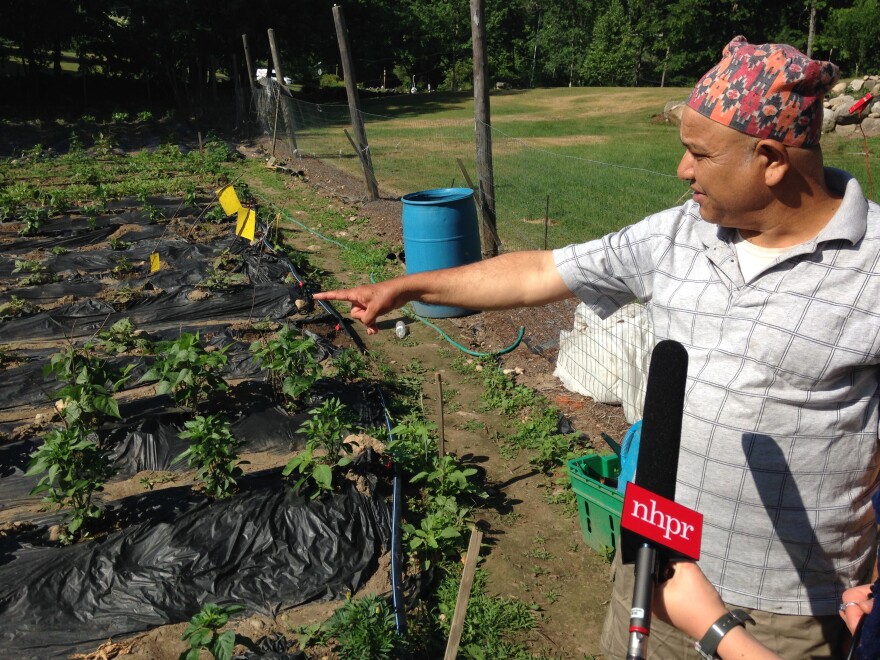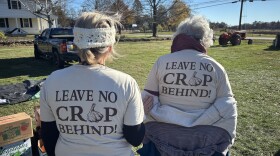Spinach, kale, and tomatoes are foods you'll have no trouble finding this time of year in New Hampshire gardens. But take a turn down a little road in Bedford and you’ll find a farm growing plants you may have never seen before, unless you’ve been to Bhutan, or parts of Africa. At Common Earth Farms, refugee families grow vegetables from around the world.
On a day that's expected to be hot, Bhutanese Refugee Dhele Niroula provides a little liquid relief to a row of plants baking in the morning sun. His father and fellow gardener, Khada Niroula, names these plants.
“Toocroke, bittermelon, and long beans,” he says, as he points to each.
Toocroke, bittermelon, and long bean--not the usual suspects in New Hampshire gardens. But they're common in Bhutan, where Dhele and Khada once grew them on their farm. Now that they're in New England, they order their seeds online.
Khada and Dhele's family fled Bhutan to escape religious discrimination. They are Hindu Buddhists. They left Bhutan behind, but transplanted their farming knowledge into the New Hampshire soil.
On this morning, like every morning, Khada checks on the tomatoes. They grow between a network of horizontal sticks, which support the weight of the fruit. Khada says, this is close to how his garden looked in Bhutan, except with a few more tomatoes, a little bigger, and a few more sticks.
“They don’t have things like tomato baskets, cages, stakes…it’s incredibly creative, " says Gail Prince. She owns the property and leases it to these and other refugee families for one dollar a year.
"I run a for loss business, as opposed to a nonprofit," she says. Which doesn’t leave her with a whole lot of extra cash, but that’s not why she’s in it.
“I do this for joy,” she explains.
Prince says it’s fulfilling to see refugees coming together and sharing the land, after what they have suffered in refugee camps. She can hear them working from her house, "laughing and singing out here.”
And making use of the land. Vegetables climb all over each other--tall stalks spring up around bushier, ground-hugging plants. African eggplant is a big deal here. So is red mustard. We tried it when we were there.
“It takes a while to kick in, so chew it…”
“So it’s hot.”
“So don’t eat it all at once?”
“It’s almost like wasabi.”
“I taste spicy mustard.”
“Yeah, like a Dijon.”
“Yes. And it has a delayed reaction…”
And every Thursday, the Niroula family packs these veggies into coolers and sells them at the Manchester farmers market, where other refugee families line up for a taste of home.









